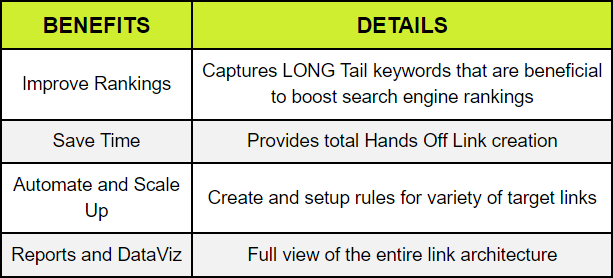Explore the differences between JSON Type Definition and JSON Schema. Learn how to structure your JSON data effectively for applications.
JSON Type Definition vs JSON Schema
In the world of data structuring and web development, JSON (JavaScript Object Notation) stands out as a lightweight and easy-to-use format for data interchange. However, as the complexity of data grows, so does the need for clear rules and structures to ensure that JSON data is consistent and valid across various applications. This is where JSON Type Definition and JSON Schema come into play.
Understanding JSON Type Definition
JSON Type Definition, also known as JTD, is a recent specification designed to be simple. It focuses on defining the types of JSON data in a way that’s optimized for code generation across different programming languages.
Key Features of JSON Type Definition:
- Simplicity: JTD schemas are less verbose and easier to write and understand.
- Code Generation: It is designed with code generation in mind, making it easier to create data models in various programming languages from a JTD schema.
- Validation: JTD allows for efficient data validation, ensuring that the data matches the expected types.
Grasping JSON Schema
JSON Schema, on the other hand, is a more mature and feature-rich specification. It provides a powerful way to validate the structure and presence of data within JSON documents.
Advantages of JSON Schema
- Flexibility: JSON Schema offers a wide range of validation keywords to define and describe your data in detail.
- Validation and Documentation: It serves both as a validator and as documentation for your data structure.
- Compatibility: JSON Schema has been widely adopted and is compatible with many tools and libraries.
Comparing JSON Type Definition and JSON Schema
| Aspect | JSON type definition | JSON schema |
| Focus | Type Validation | Detailed data validation |
| Complexity | Simple | Complex |
| Best used for | Code generation | Detailed datavalidation |
| Specification Version | RFC 8927 | Draft 2020-12 |
When to Use JSON Type Definition vs JSON Schema
Use JSON Type Definition when:
- You need to generate code from JSON data models.
- You prefer simplicity and ease of use.
- Your primary concern is typing, checking, and validation.
Use JSON Schema when:
- You require detailed validation that includes patterns, lengths, and other constraints.
- You want to use the same schema for both validation and documentation.
- You are working with complex data structures that need extensive descriptions.
Step-by-Step Guide to Implementing JSON Type Definition and JSON Schema
Implementing JSON Type Definition
- Define Your Data Types: Start by outlining the types of data your application will handle.
- Write the JTD Schema: Use the JTD specification to write a schema that represents your data types.
- Generate Code: Utilize tools that convert JTD schemas into code for your target programming language.
- Validate Data: Use JTD validators to ensure that the incoming data conforms to your schema.
Implementing JSON Schema
- Describe Your Data Structure: Detail the structure, types, and additional constraints of your data.
- Create the JSON Schema: Write a JSON Schema that accurately describes your data model.
- Integrate with Tools: Use JSON Schema with various tools and libraries for validation and documentation.
- Perform Validation: Validate your JSON data against the schema to ensure it meets all specified requirements.
Choosing between JSON Type Definition & Schema
JTD and JSON Schema ultimately depend on your specific needs. JTD is better for simpler, more straightforward scenarios where you need quick validation and are also looking to generate code across various programming languages. It’s designed to be easy to write and understand, making it a great choice for projects that require less complexity.
On the other hand, JSON Schema is more suitable for complex scenarios that require detailed validation constraints. It’s a robust tool that offers extensive features for validating the structure and presence of data, making it ideal for more intricate data models.
In summary, if simplicity and code generation are your priorities, go with JTD. If you need comprehensive validation capabilities, JSON Schema is the better choice.
Latest Developments and Best Practices
The JSON community is continuously evolving, with new tools and best practices emerging regularly. Staying updated with the latest developments in JSON Type Definition and JSON Schema can help you make the most of these specifications.
Best Practices
Keep Schemas Updated: Regularly review and update your schemas to reflect changes in your data models.
Use References: To avoid repetition, use `$ref` in JSON Schema to reference definitions.
Test Your Schemas: Ensure your schemas are correctly validating the data by writing comprehensive tests.
Conclusion
Both JSON Type Definition and JSON Schema offer unique advantages for structuring and validating JSON data. By understanding their differences and applications, developers can choose the right tool for their needs, ensuring that their data is well-structured and their applications are robust and reliable.
FAQs
Q. What is the difference between JSON Schema and JSON type definition?
Functionality-wise, JSON Type Definition is a subset of JSON Schema, with one exception: JSON Schema doesn’t support tagged unions (the discriminator JTD form). There are no data constraints, so you can’t say a string is supposed to have a length of 5, you can only say a string is a string.
Q. What is schema and type?
While the term schema is broadly used, it is commonly refers to three different schema types, a conceptual database schema, a logical database schema, and a physical database schema.
Q. What is an example of a type of schema?
Person schemas are focused on specific individuals. For example, your schema for your friend might include information about her appearance, her behaviors, her personality, and her preferences. Social schemas include general knowledge about how people behave in certain social situations.

